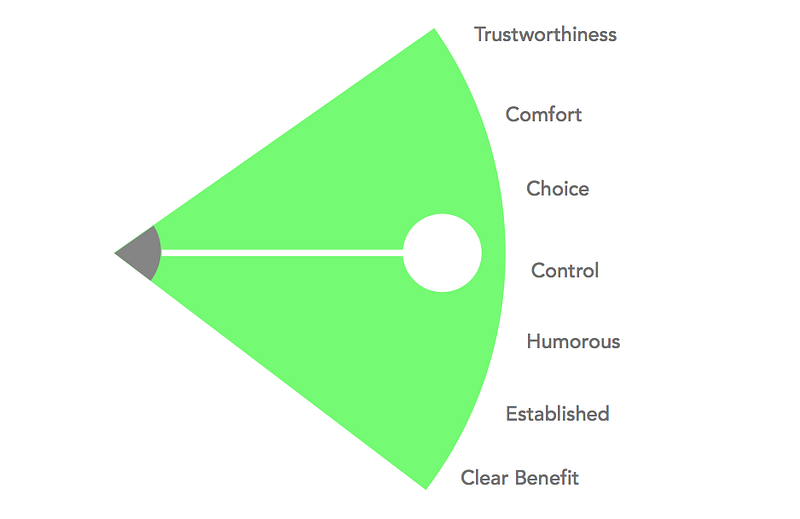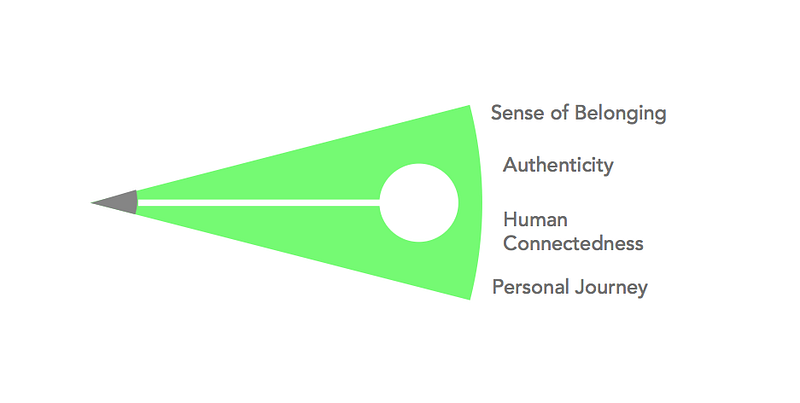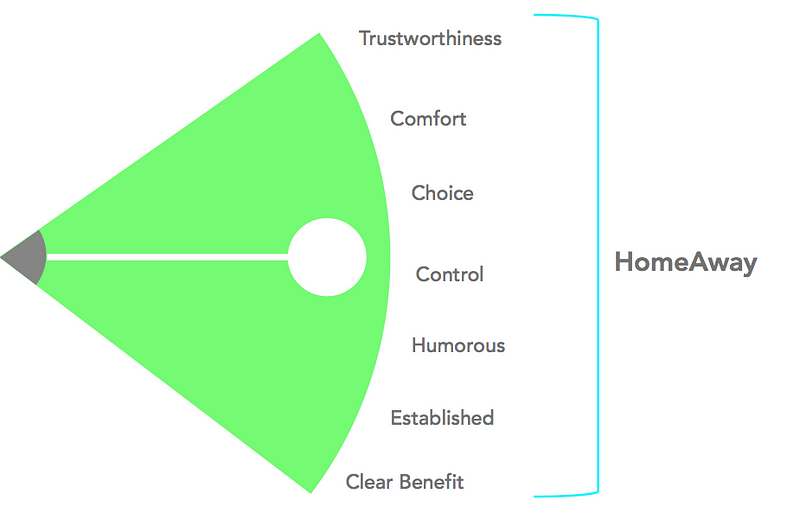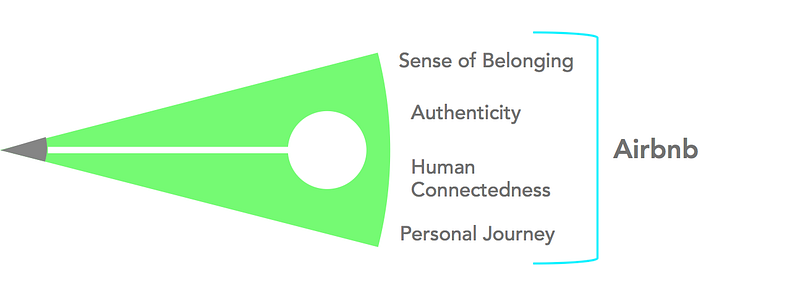[Update: This article has been updated here, along with a 5-minute video covering the major principles discussed in this piece, here.]
I like to start every brand strategy for a new client with two simple questions. They may seem easy enough, but they actually reveal a tremendous amount of information about the mindset of a company’s leadership team while posing a much more difficult challenge than most people realize.
1. How is your brand perceived today?
2. How do you want it to be perceived in the future?
Before you write those off as simple questions, consider the fact that your answers can literally change the course of your business. Taken together, I like to call them the Perception Queries, and everyone can benefit from answering them.
Take a moment to answer them for yourself. Without expectation or marketing jargon, write down your own responses as sincerely as possible.
These are actually loaded questions that you can use to get laser focus on the direction of your brand strategy from the point you’re at today to where you need to be in 1, 3 and 5 years from now. They will prove valuable at every juncture in your company’s trajectory, especially when easy short term growth opportunities gently nudge you away from your ultimate long term vision.
How You Answer Matters
The smartest founders I’ve ever met have struggled with this question in our first meeting. That’s because they understand that the Perception Queries force them to predict the future of their industries, fully embracing the distance between where they are now and where they need to be — all without any guarantees that the world will look how they expect it to later on down the line. The very premise and viability of their businesses are tied up in these answers.
The responses I get usually fall into 1 of 3 categories:
- The Vision/ Mission Response — “Our company builds the best widgets for the modern widget-using consumer who needs speed, quality and dependability.” No, this is not how a company is perceived. When I get some version of the company vision or mission as an answer, it often means that they haven’t stopped to empathize with the user. The Perception Queries force you to put yourself in the customer’s shoes and feel what their relationship to your brand truly is… and it’s not a marketing line.
- The Goal/ Model Response — “We want to be perceived as the #1 widget-maker in the US market within four years…” or “We’re the Uber for widgets…”. Of course everyone wants to own their market or adopt a proven model, but heres the thing — if the opposite of your strategy is not also a strategy, then you don’t have a strategy to begin with. Nor do you have an answer to the Perception Queries. People who answer with a Goal/ Model response usually haven’t stopped to develop a clear hypothesis of the future they’re creating for.
- The Characterizing Response — “We‘re perceived as fun, unique, nimble, creative, growing and smart today… but we want to be perceived as large, institutional, trustworthy and influential in the future.” If you’re answering with adjectives, you’re on the right track. Perception is a point of view, and when users take a specific view of your company, they characterize your brand in a similar way. But a long list of general adjectives like this can still lead you astray. The specificity and deliberate choosing of those characteristics is what matters.
Regardless of your answer, we can test and refine it by considering the world of the future, specifically the unique world you envision for your business.
Your Hypothesis Of The Future
I’ve talked about this before in my workshops because it’s fundamental to a strong brand identity. Your hypothesis of the future is how you see the world changing at a later point. The way you see the world in 3–5 years is at best an educated guess, and I often call this ‘making your bet’.
If you imagine the future to be an endless set of possibilities as represented by a circle (or perhaps more accurately, a sphere), then your hypothesis is the small sliver of possibilities that will actually come to fruition.
If you’re Uber, your vision of the future isn’t that we will all be getting around in self-driving cars, but rather that manually operating your own car will become an outdated, dangerous, archaic activity that the public collectively rejects.

Once you have your vision of the future, your competitive set will shift. The people who are really in your way aren’t those that are making similar products with similar features today, but rather those who are making the same prediction of the future.

Snapchat was a social platform on par with Instagram and Facebook, but their vision of the future wasn’t about an app. It was about how we create and consume content. That’s why they created Snap Spectacles and suddenly became a hardware competitor in line with Apple. Anyone who paid attention to their hypothesis would have seen that coming.
Just like Snap Inc. and Apple, a clear vision of the future will likely put you in interesting company.
Once you have your hypothesis and competitive set, every step of your brand strategy needs to project you past all other players to a defensible, forward-looking position.

Now we can return to our original two questions. Once you know your hypothesis and what you need to project yourself past others in your space, consider the Perception Queries again.
1. How is your brand perceived today?
2. How do you want it to be perceived in the future
Be Bold & Get Specific
A characterizing answer is on the right track, but I often push people to get specific with their perceptions. Let’s imagine a young company that has recently entered the incredibly crowded travel booking space.
How is the brand perceived today? Well it’s new, so the perception is broad. Travel booking involves a lot of trust, especially in the face of legacy companies, so people will be hesitant and struggling to understand how the offering fits into their consideration set:
Startup
Risky
Novel
Niche
Techie
Confusing
Fun
I want to note here that it’s ok if peoples’ perception of you company today is broad. It’s not the best place to be, but that’s exactly what we’re going to fix in the near future. What isn’t ok is if your future perception is still very broad.
If a company knows how their brand is perceived today, the temptation is often to ‘fix’ the negative characterizations for their perception tomorrow:
Future Perception A

But having a positive future image is the booby prize. Positive doesn’t mean unique, and it certainly doesn’t mean differentiated. It may seem like a good decision, but it leaves money on the table.
Most importantly, it creates a very broad perception that can be confused with any other travel booking company out there. There is no specific assumption about the future of travel here. This is a perception that many brands embody today and as time goes on, will only become a baseline of expectation for travelers.
Let’s narrow our focus and really dig to see what is under the modern travel experience. We want to see what the future (and our future perception) might look like.
Travel is increasingly becoming a very personal experience. We travel to find ourselves, to discover who we are, to understand why we’re here and where we belong in the world. It’s why industries like adventure travel and eco tourism are flourishing.
If we venture to create a more narrow perception with even just this little bit of information, we get something very different:
Future Perception B

Note that this narrow perception doesn’t mean you can’t still be trustworthy, established and offering a clear benefit. It simply means that you are willing to take a bolder stance, to be a far more specific brand that resonates with users who are seeking that same brand experience. It runs in parallel with what every marketer, salesperson and founder already knows — it’s about benefits, not features.
What we have here is already more familiar than you might realize. In the mid- to late-2000’s, a proliferation of travel startups had entered the space. Every week there seemed to be another company trying to disrupt the industry, and every single one of them could be described as startup, risky, novel, niche, techie, confusing, and fun.
However, two major companies made it through the tumult. HomeAway and Airbnb evolved their brands for the future, but one of them took the bold risk of defining a narrow perception, and is the clear winner today:


Your second answer to the Perception Queries is the one that really matters. You can start from anywhere, even if it’s the same place as your competitors, but you need to know where you’re going if you want to stop playing in someone else’s backyard.
Brand strategy requires tough decisions that will touch every aspect of your business. Asking the right questions up front is crucial.
If you’re a founder, I’d recommend asking your team the very same things as well. Their responses may surprise you.
The Perception Queries are important for an entire team because they go beyond a Vision or Mission. They aren’t marketing sound bytes. They’re a pact — an agreement that everyone is moving in the same direction — and that’s something worth knowing.




